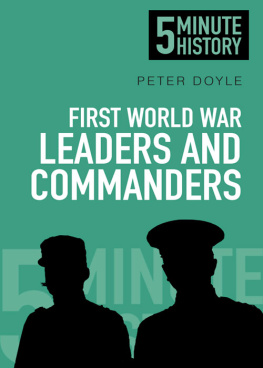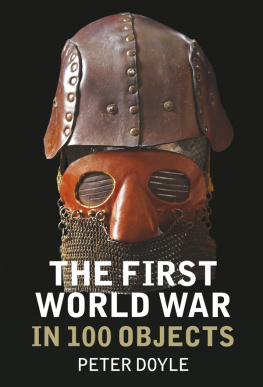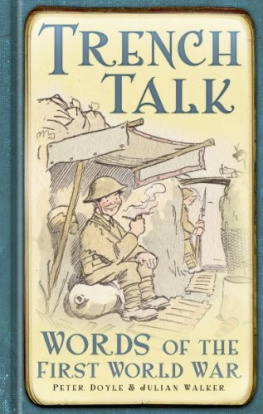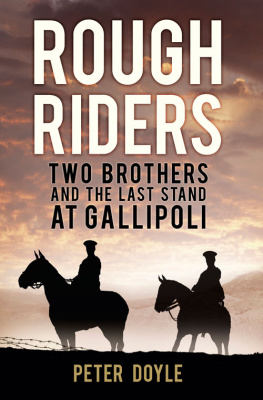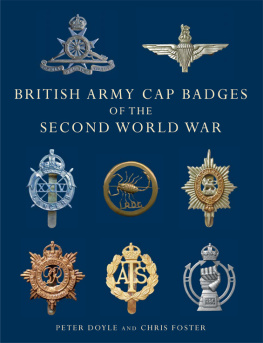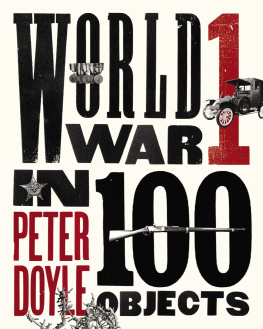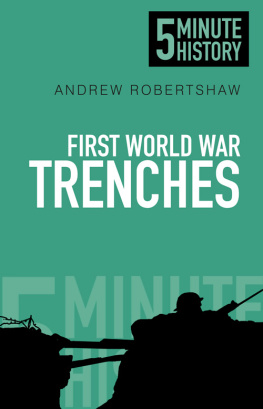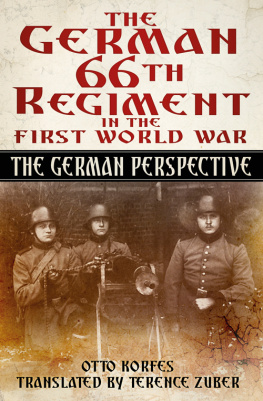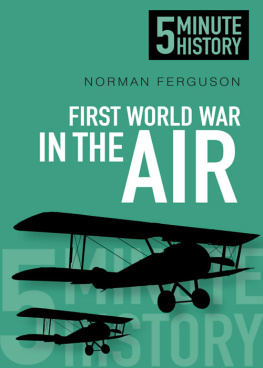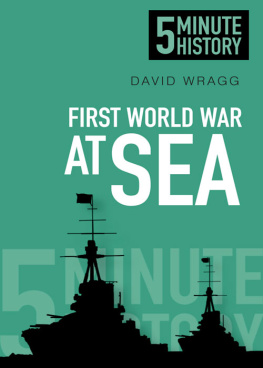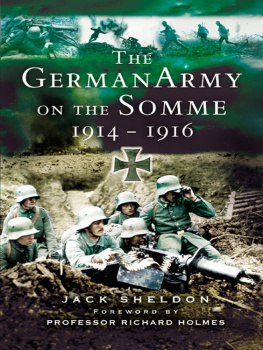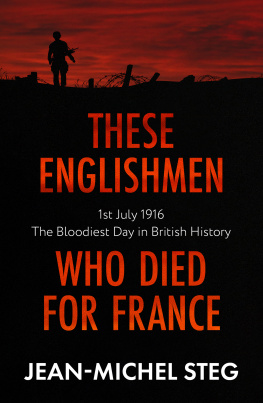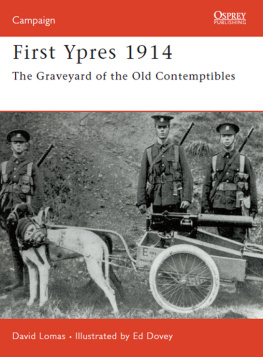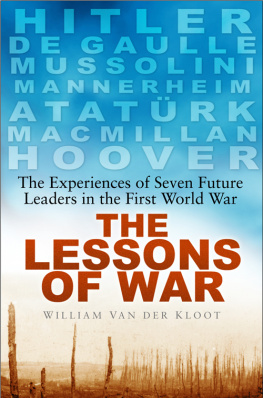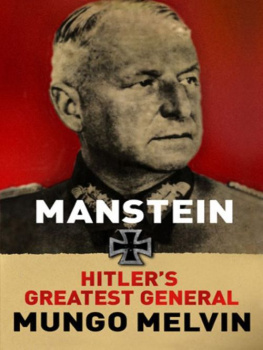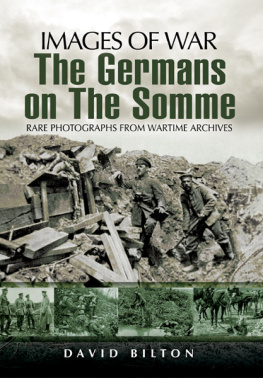
CONTENTS
TENSIONS IN EUROPE since the Franco-Prussian War of 187071 and the ascension of a new Kaiser, Wilhelm II, to the throne of the German Empire in 1888 led to power shifts. This meant the development of a new understanding between France and Britain, who put aside their imperial differences in the signing of the Entente Cordiale in 1904. This agreement was followed by the Triple Entente of France, Britain and Russia in 1907. Though not a formal alliance, the Triple Entente nevertheless brought three European nations together in a defensive understanding that gave some protection in the face of attack, with the focus on the Central Powers of Germany and Austria-Hungary, situated at the heart of Europe. Between them, in the west, was the neutral state of Belgium, its borders guaranteed by all the main European signatories, including Britain, Germany and France.
The German Empire was created from a federation of states united by its first chancellor, Otto von Bismarck, in the wake of the victory over France in the Franco-Prussian War of 187071. The Dual Alliance, in October 1879, locked Germany and Austria-Hungary together with the guarantee of military aid in the case of attack by Russia. It also promised benevolent neutrality should another European country namely France attack either of their nations. The Ottomans, defeated by Russia in 1878, were also to be courted.
The declaration of war between Austria-Hungary and Serbia in 1914 initiated world conflict; with Germany and Russia supporting their allies, the stage was set, and one by one nations were brought into the fray: France and Britain, Ottoman Turkey and Italy, and ultimately the United States in 1917. There were many other contributions from other nations, Serbia, Japan, Bulgaria, Portugal and Romania among them. This 5 Minute History focuses on the principal nations and their leaders, and the military commanders who led their armies in battle. It focuses on the main personalities, the generals that shaped the battles or suffered the defeats. A book of this size can never hope to be comprehensive, with some smaller nations omitted, but the main participants, their words and deeds, are here.
PART 1
GREAT BRITAIN, ONE of the three main Entente Powers, came into the war following the invasion of Belgium on 4 August 1914.
THE LEADERS
Herbert Asquith
Herbert Asquith was prime minister when Britain went to war in 1914. A liberal politician, he was well known as an orator, and had been in the post since 1908. With David Lloyd George as his Chancellor of the Exchequer, he selected Kitchener as his Secretary of State for War. In May 1915, Asquith formed a Coalition government in order to create a more solid basis for a wartime administration. But 1915 was a difficult year, especially when the British offensives at Neuve Chappelle, Aubers Ridge and Festubert were fought without satisfactory artillery preparation and with an inadequate supply of shells. With the newspaper giant Lord Northcliffe leading the assault against the prime minister, the Conservatives in the Coalition started to question his ability. Though the Shell Scandal, as it was known, was solved by forming the Ministry of Munitions to co-ordinate supply and step up manufacturing, it was the increasing number of casualties that made things intolerable for the prime minister, particularly in the wake of the Battle of the Somme. But it was Lloyd George who would signal the end of Asquiths time in office. Manoeuvring behind the scenes, Lloyd George proposed a War Committee that could handle the day-to-day conduct of the conflict. Under pressure from the press, Asquith finally resigned on 5 December 1916; Lloyd George stepped into his place to lead a new Coalition the next day.
DID YOU KNOW?
Raymond Asquith, the prime ministers son, served with the Grenadier Guards as a lieutenant and was mortally wounded on the Somme while leading his men into action, on 15 September 1915.

David Lloyd George
Lloyd George is known as one of the most charismatic politicians of his age; a lawyer by profession, he became a Liberal MP in North Wales, and with his penchant for oratory was soon in the public eye, rising through the political ranks to serve as Chancellor of the Exchequer. In this post, Lloyd George introduced social reforms that included improvements to social care and the introduction of National Insurance and pensions for old people. On the eve of war, Lloyd George and three other senior figures expressed their opposition to the coming conflict; whilst the others resigned, the Welshman was persuaded to stay, and served with distinction in the wartime government.
DID YOU KNOW?
Lloyd George was committed to the raising of an entire army corps of Welsh soldiers men who would serve together and who would wear a uniform of homespun Welsh cloth. This dream did not come to fruition, though the 38th (Welsh) Division served with distinction.

The Shell Scandal of 1915, when British guns were left without sufficient ammunition, rocked the government. Lloyd George was put in place to lead the Ministry of Munitions, which would ensure that shortages would eventually become a thing of the past. From opposing the war to ensuring its successful conclusion, Lloyd George was tireless and considering the conduct of the war was beyond one man, he schemed for a War Committee to run the conflict. This plan was successful, at the cost of Asquiths resignation; in his place came the Welshman, who formed a new Coalition government in 1916. The new prime minister and the commander-in-chief, Sir Douglas Haig, did not see eye to eye, especially as he tired of the deadlocked trench warfare battles on the Western Front, and sought to divert resources elsewhere, to battlefronts considered to be sideshows by many of the generals. Despite this difference of opinion, Lloyd George stuck with Haig, as there were few others that could step into the breach. At the end of the war, Lloyd George was pressed for a fair settlement with Germany at Versailles, fearing the defeated nation would be plunged into revolution.
I WAS THERE
Once he had taken up war as his metier he seemed to breathe its true spirit; all other thoughts and schemes were abandoned, and he lived for, thought of and talked of nothing but the war.
Max Aitken, talking of Lloyd George, 1928

DID YOU KNOW?
Still committed to social reforms, Lloyd George promised he would create a land fit for heroes for the returning soldiers; with opposition in his Coalition government, he could not deliver on his word.

Field Marshal Herbert Kitchener
When Field Marshal Earl Kitchener of Khartoum took over as Secretary of State for War in August 1914, he was Britains most famous soldier, having served with distinction in the Sudan and in the Boer War. With war declared, Asquith turned to Kitchener to be his Secretary of State though this was not without risk, as, typically of many military men, he had a distrust of politicians. Known to be strong-minded and autocratic, Kitchener was also aware that in all likelihood the war would be long, and, faced with a limited but professional army, he was quick to understand that it would be costly in manpower. Kitchener made a direct appeal to the public, not being confident that the Territorial battalions could be sufficiently flexible to allow rapid expansion, and he set his sights on expanding the army by 500,000 men, with separate appeals, in 100,000 tranches. The Shell Scandal of 1915 hurt Kitcheners reputation, particularly as the Ministry of War was also responsible for the supply chain of munitions. Gallipoli, too, was damaging even though Kitchener was never fully committed to it and His reputation was in decline. Nevertheless, when the Tsar requested Kitchener visit Russia in 1916 to help bolster national support for the war, he agreed to go. This was a fatal mistake: on 5 June 1916, the ship carrying the field marshal, HMS Hampshire , hit a mine off the Orkney Islands and sank with almost all hands; Kitchener was drowned. The nation mourned.
Next page
